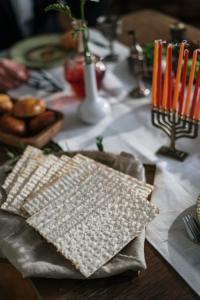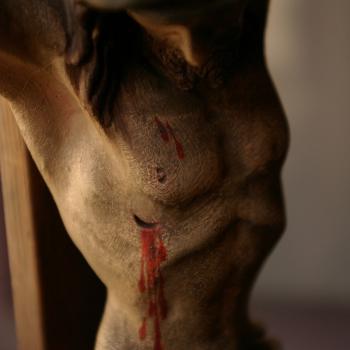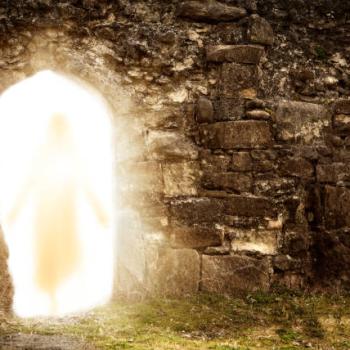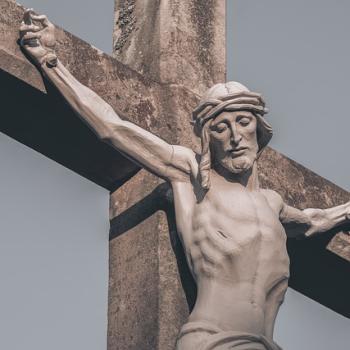
Was Jesus thinking about “Real Presence” during that first Holy thursday supper, or was his mind on what Passover had always meant — or should have meant — for Israel’s people. My guess will depend on a phrase in both Jesus’ own Scriptures and a modern Jewish celebration of Passover. Both of these sources call the unleavened bread of Passover the “Bread of Affliction.”
Scripture and justice for the afflicted
Modern Bible scholars locate Jesus right in the midst of the worldly concerns of first-century Palestine’s poor people. Against Roman occupiers and their cooperators among the wealthy and priestly classes, Jesus sided with the poor. In support of his political and economic advocacy, Jesus appealed to the laws and the prophetic writings of Scripture. These encoded obligations that the well-off owed to the poor – the slave, the orphan, the widow, the stranger.
Jewish Scripture traces these obligations back to the Israelites’ storied beginning, as a united people, in the Exodus from Egypt:
You shall not wrong or oppress a resident alien, for you were aliens in the land of Egypt. You shall not wrong any widow or orphan. (Exodus 22:20)
And,
Remember that you too were slaves in the land of Egypt, and the Lord, your God, redeemed you. That is why I am giving you this command today. (Deuteronomy 15:15)
The Passover Supper, which Jesus and his apostles ate on that first Holy Thursday, told the story of the people’s redemption from slavery. God’s redeeming of the Israelites from their affliction in Egypt was the source of the former slaves’ obligations toward every similarly afflicted person in their midst.
What Jesus may have imagined on Holy Thursday
We have been taught to think not of the poor when hearing Jesus’ words at the Last Supper but of Jesus himself, really present in the sacrament. We count on the words Jesus spoke at that meal, the earliest record of which comes from St. Paul:
“THIS IS my body that is for you….THIS CUP IS the new covenant in my blood.” (1 Corinthians 11:23-26)
The phrases that I put in capaital letters, “This is…. This cup is….” seem clear enough. Jesus didn’t say “This represents my body” or “This cup represents….” So we imagine Jesus was speaking literally.
I’m taking another look at Jesus’ words at that Passover celebration. When I imagine the feeling beneath the words, I find something besides what we call real presence. I find a challenge that we dare not lose sight of, the same challenge Jesus gave to his time and place.
Another look at Holy Thursday’s Bread of Affliction
Some words from a modern Jewish celebration of Passover, also well-known to Jesus from his Scriptures, could have belonged at the Last Supper. The words are from the “English Haggadah Text with Instructional Guide” (online at Chabad.org). In this version of Passover, Jews today recite:
THIS IS the bread of affliction that our fathers ate in the land of Egypt.
And,
WE WERE slaves to Pharaoh n Egypt, and the L-rd our G-d took us out from there with a strong hand and with an outstretched arm. (Caps mine in both quotes)
“This is” and “We were” here sound to me just like Jesus’ “This is” when he referred to the bread and cup at the Last Supper. But do modern Jews think they “really” were among the slaves in Egypt and that now they’re eating bread that is “really” the same as what the fathers ate? Do they have to think that way just because the words don’t say “This represents”?
No record tells us that Jesus used the words “bread of affliction” and “slave in Egypt” at the Last Supper. But these thoughts certainly were there, remembered from familiar Scripture passages:
For seven days you shall eat unleavened bread – the bread of affliction. (Deuteronomy 16:3)
And
Remember that you were a slave in the land of Egypt. (Deuteronomy 15:15 and other places)
More than Real Presence
When I pick up my Bible and read the words above, I don’t think of real presence. I don’t think Jesus would have thought he was really a slave in Egypt eating literally the same bread they ate. Instead the words evoke feelings in me, an emotional identification with oppressed Hebrew slaves in the land of Egypt. I’m far away from those slaves. Much closer in time, distance, and life situation were the oppressed people of first-century Palestine. Jesus was one of these. He experienced the force of that oppression and made it his mission to pursue God’s justice in its place.
Jesus always knew the Passover bread as bread of affliction. When he looked at this bread for the last time and called it his body, he must have seen himself and all his previous work as bread for the afflicted. When he looked at the cup, he must have seen blood, sweat, and tears poured out in service to a New Covenant between God and God’s people Israel.
A later theology, as much as 60 years later, prompted by the Spirit in St. John the Evangelist, spoke of eating “my flesh” and drinking “my blood.” Much later the Church developed its Eucharist theology wrapped in words like Real Presence and Transubstantiation.
The Spirit doesn’t operate on anyone else’s timetable. One needn’t imagine any later theology already in Jesus’ mind while he was on earth as if he always thought like a god. But we need to pay attention to the way the human Jesus at the Last Supper gives us one of the Eucharist’s important challenges.
A Eucharistic challenge
“Real Presence” in the mind of the faithful today may end up not being much of a challenge at all. Maybe an intellectual challenge: How can I believe that? I can’t even understand it! But the point and, I imagine, the feeling of Passover was all about remembering God’s poor, who ate unleavened bread in their long ago affliction and hurry to escape. And about that people’s descendants, including us, who still are challenged by obligations to the afflicted that Scripture so literally detailed. That Passover challenge meets us in every Eucharist.
(This posted is adapted from a series that I called “The Worldly Spirituality of the Gospel of Mark.” If interested, this link will take you to the first in the series and a table of contents.)













